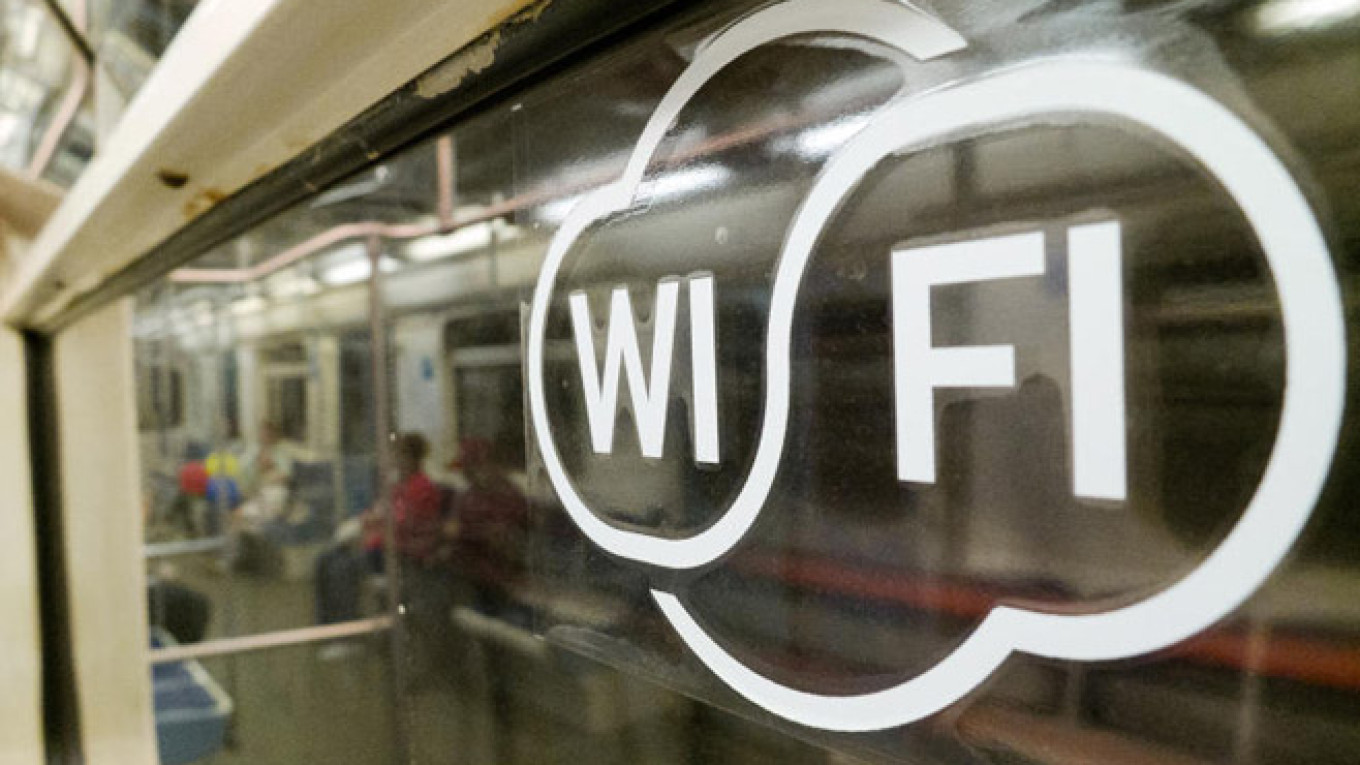The Kremlin is pushing to have Russian Internet providers filter content before delivering it to users, a potentially very costly censoring procedure, a prominent news website said.
The new rules may be passed by the State Duma before the year's end, Gazeta.ru said Monday, citing an unnamed source "familiar with the situation."
The website identified presidential aide Igor Shchegolyov as the bill's main lobbyist.
The filtering would exclude materials unsuitable for children, the report said.
Russia has draconian regulations in this area, prohibiting the underage from contact with profanity, violence, extremist content and "gay propaganda" in media and on the web.
These and other online restrictions, initially billed as non-political, have later been expanded to include political censorship.
Content filtering is advocated by the League of Safe Internet, a state-affiliated web morality watchdog that is already developing and selling Internet content filters.
The group was founded by Konstantin Malofeyev, a pious tycoon blacklisted in the EU over his alleged — but unconfirmed — role as the middleman between the Kremlin and pro-Russian separatists in eastern Ukraine.
Shchegolyov did not comment on the story, Gazeta.ru said, while the League of Safe Internet representatives endorsed the idea — first pitched last summer by ultraconservative lawmaker Yelena Mizulina — in a press release Tuesday.
The bill was also absent from the State Duma legislation database as of Tuesday.
However, Gazeta.ru's source claimed that the bill's authors were aiming for secrecy to avoid a public outcry.
Russia's government and its loyalist legislature have a track record of passing so-called "blitzkrieg" bills that impose Internet restrictions within weeks and without consulting the web community or IT industry.
The proposed filtering is a mammoth undertaking, given that Russia's Internet traffic this year is forecasted by Internet giant Cisco to reach 1.9 exabyte (an exabyte is a thousand million gigabytes).
The cost of such an undertaking would be billions of , Artyom Kozlyuk, head of the independent Internet freedom watchdog Rublacklist.net, told The Moscow Times on Tuesday.
He said the bill was politically motivated, but also a lobbyist effort.
"Such pre-filtering, so-called 'state whitelisting,' would be a whole new level of Internet censorship and restriction of net freedoms," Kozlyuk said in e-mailed comments.
The Russian government has been accused since 2011 of building a domestic version of the "Great Firewall of China" of web censorship.
A handful of state watchdogs are already authorized to blacklist websites without a court order.
Security services are also in the process of implementing SORM-3, a sweeping system of monitoring Internet traffic similar to the one used by the U.S. National Security Agency prior to its exposure by U.S. intelligence leaker Edward Snowden last year.
The government previously tried to get users to pay to have themselves monitored when it pushed to make Internet providers foot the bill for SORM-3 equipment, Kozlyuk told The Moscow Times earlier this year.
Editor's note: This article has been amended to read "rubles" instead of "dollars" in Kozlyuk's estimate of the project's costs.
A Message from The Moscow Times:
Dear readers,
We are facing unprecedented challenges. Russia's Prosecutor General's Office has designated The Moscow Times as an "undesirable" organization, criminalizing our work and putting our staff at risk of prosecution. This follows our earlier unjust labeling as a "foreign agent."
These actions are direct attempts to silence independent journalism in Russia. The authorities claim our work "discredits the decisions of the Russian leadership." We see things differently: we strive to provide accurate, unbiased reporting on Russia.
We, the journalists of The Moscow Times, refuse to be silenced. But to continue our work, we need your help.
Your support, no matter how small, makes a world of difference. If you can, please support us monthly starting from just $2. It's quick to set up, and every contribution makes a significant impact.
By supporting The Moscow Times, you're defending open, independent journalism in the face of repression. Thank you for standing with us.
Remind me later.


